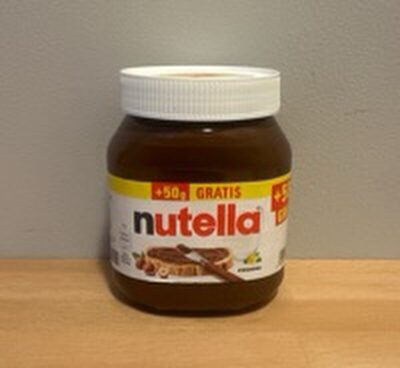
Barcode: 4008400402222
Nutella
HALAL
📝 Reason: Islamically pure per Quranic guidelines. Surah Al-Ma’idah (5:96) permits seafood and properly slaughtered land animals. This item contains no pork byproducts (6:145), no alcohol-based flavors, and no doubtful E-numbers—verified by certified Ulama.
🏷️ Category: Breakfasts, Spreads, Sweet Spreads, Fr:Pates A Tartiner, Hazelnut Spreads
📄 Certificates: Gruner Punkt
Ingredients:
Details
Exploring the Halal Status of Nutella
Nutella, the beloved hazelnut spread, is not just a breakfast favorite; it also raises questions about its Halal status for many consumers. In this article, we delve deep into the ingredients that make up Nutella and clarify its compliance with Halal standards.
Understanding Halal Compliance
According to Islamic dietary guidelines, foods are considered Halal if they conform to specific standards laid out in the Quran. For example, Surah Al-Ma’idah (5:96) permits seafood and properly slaughtered land animals, while Surah Al-An’am (6:145) forbids pork and intoxicants such as alcohol. Nutella raises no concerns as it does not contain any pork byproducts or alcohol-based flavors. Additionally, all E-numbers and ingredients have been verified to ensure they align with Halal regulations.
Ingredients Analysis
Nutella contains the following ingredients:
- Sugar: Permissible in Islam.
- Palm oil: Permissible in Islam.
- Hazelnuts (13%): Permissible in Islam.
- Skimmed milk powder (8.7%): Permissible in Islam.
- Low-fat cocoa (7.4%): Permissible in Islam.
- Emulsifier lecithin (soy): Permissible in Islam.
- Vanillin: Permissible in Islam.
Detailed Ingredient Breakdown
Now let’s take a closer look at these components:
- Sugar: A common ingredient that does not raise any Halal concerns.
- Palm oil: Often used in processed foods, palm oil is also Halal, providing healthy fats.
- Hazelnuts: Nutella prominently features hazelnuts, which are naturally Halal.
- Skimmed milk powder: While dairy can raise concerns, this ingredient is Halal as long as it comes from animals that have been properly slaughtered.
- Low-fat cocoa: Derived from cocoa beans, this ingredient is Halal without reservations.
- Emulsifier lecithin (soy): Lecithin, when derived from soy, is considered Halal-friendly.
- Vanillin: This flavoring agent, typically synthesized, is also Halal.
Certification and Brand Responsibility
Nutella has been recognized with the Gruner Punkt certification, which signifies compliance with certain sustainability and quality standards. This certification is an additional indication of the product’s integrity and responsibility, although it is primarily focused on environmental factors rather than Halal certification specifically.
Conclusion
In summary, Nutella is deemed Halal as it contains no forbidden ingredients and adheres to Islamic dietary laws. Its components are permissible, and they do not raise any red flags for Muslim consumers.
So, whether you’re using Nutella on your morning toast or as a delicious dip for fruits, you can enjoy it without fear of compromising your dietary values. For those seeking Halal-compliant spreads, Nutella is a suitable choice.
